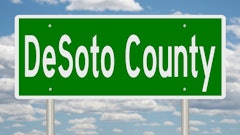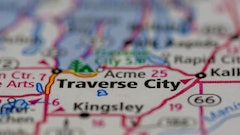
California voters took to the polls Tuesday, June 5, to vote in the state’s primary elections for governor and key congressional seats, as well as several local cannabis tax measures.
The Race for Governor
Democratic Lt. Gov. Gavin Newsom and Republican John Cox won the top-two spots in the gubernatorial primary and will be on the ballot during November’s general election.
Newsom has largely supported the cannabis industry and said at the California Democratic Party convention in April 2013 that the war on drugs was “an abject failure."
“Gavin Newsom’s demonstrated his thinking is in line with most of California and most of the country on marijuana policy,” Mason Tvert, spokesperson and media relations director for Marijuana Policy Project, told Cannabis Business Times.
Cox, however, has been under fire after The San Diego Union-Tribune reported April 23 that the candidate said marijuana users should be hospitalized in a system similar to that in Portugal, where people who are found with small amounts of drugs receive mandatory medical treatment but are not charged with a crime. In a May 4 report, The San Diego Union-Tribune said Cox denied the earlier statement and that he said he was talking about heroin and opioid addicts, not marijuana users. Cox said he is “certainly for medical marijuana” at a March candidates forum hosted by the Union-Tribune.
“California voters are amongst the most evolved voters in the country on this issue, and they’re not going to look very highly upon a candidate who has such antiquated views,” Tvert said. “We may see him roll back some of his comments, but it’s clear that he does not share the same opinions on this matter as most voters in California.”
“Cox seems confused on drug policy; although he suggested that California should treat drugs like Portugal does, he seemed unaware that Portugal has actually legalized all drugs, and is treating them as a health issue,” added Ellen Komp, deputy director for California NORML. “He did scale back his comments, saying under questioning, ‘I'm not necessarily demanding that [hospitalization] be done with regard to cannabis.’”
“It seems unthinkable that Cox should be elected in a state where Trump lost by four million votes,” Komp continued. “I doubt he can turn the tide away from marijuana legalization in California, where 57 percent of voters approved Prop. 64 to legalize adult use in November 2016.”
Newsom and former Los Angeles Mayor Antonio Villaraigosa, also a democrat, were the two favorites heading in to the gubernatorial primary. Villaraigosa is also a cannabis industry supporter, according to a Canna Law Blog post by Habib Bentaleb, a lawyer at Canna Law Group. Villaraigosa barely collected more than half of the votes Cox received.
Congressional Candidates
As for congressional races, Republican Congressman Dana Rohrabacher, a cannabis industry supporter who sponsored the Rohrabacher-Blumenaur amendment, will be on the November ballot after winning the primary election, according to a CBS News report.
Rohrabacher was challenged by Republican candidate Scott Baugh, who has not been supportive of the key cannabis industry protection, according to Canna Law Blog. Democratic hopefuls Hans Keirstead and Harley Rouda are the most likely to be challenging Rohrabacher for his seat, as they came within 73 votes of one another and finished in third and second, respectively.
Local Elections
Many municipalities also voted on city and county measures. Here’s a roundup of the results:
- Santa Cruz voted to repeal an ordinance that authorized law enforcement officials to enforce marijuana offenses at the lowest level or priority.
- Sierra County approved a measure authorizing the county to prohibit commercial cannabis cultivation, processing and dispensaries.
- Yucca Valley voted against allowing state-licensed commercial cannabis operations.
- Merced County residents voted in favor of authorizing the county to tax commercial marijuana businesses $25 per square foot of cultivation space or 10 percent of gross receipts, whichever is greater, until the tax is ended by voters.
- Mammoth Lakes voters passed a measure that imposes a one-percent tax on marijuana testing laboratory gross receipts; a two-percent tax on cultivation, distribution and manufacturing businesses; and a four-percent tax on gross receipts of retailers. The measure also adopts a regulatory framework for defining, conducting audits on and establishing an appeal procedure for the marijuana tax.
- Mono County voters passed Measure D, which enacts a marijuana business tax that ranges from $0.50 to $2, depending on square footage of canopy. The measure will also place a tax on marijuana business gross receipts ranging from one percent to eight percent, depending on the type of business.
- Jurupa Valley residents voted not to allow commercial cannabis activities in certain commercial zones.
- Pasadena passed Ballot Measure CC, authorizing up to six cannabis retailers, four cultivators and four testing laboratories to set up shop in the city.
- Pasadena also voted in favor of Measure DD, a cannabis tax measure that authorizes the city to tax commercial cannabis businesses at rates up to $10 per canopy square foot for cultivation, six percent of gross receipts for retail cannabis businesses and four percent for all other cannabis businesses.
- San Rafael also passed a tax measure, Measure G, which allows the city to tax cannabis businesses up to eight percent.
- Santa Barbara County approved cannabis taxes in the form of Measure T. If the measure failed, the cannabis ordinance that was previously passed by the Board of Supervisors would not have been enacted.
- San Luis Obispo County also passed a tax measure, and like in Santa Barbara County, if the measure failed, commercial cannabis operations would not have been able to set up shop in the county.
- Weed County passed Measure K, authorizing the county to impose a $10-per-square-foot tax on outdoor grows, an $18-per-square-foot tax on grow areas using natural and artificial light, a $26-per-square-foot tax on indoor grows or 10 percent of yearly gross receipts.
- Yolo County passed a tax measure that will place a four-percent cultivation tax and a five-percent tax on all other cannabis businesses in the county.
- Nevada City’s Measure F to tax cannabis businesses passed by a wide margin of nearly 86 percent.
- San Benito County’s tax measure to tax all facets of cannabis businesses also passed.
Top Image: © niyazz | Adobe Stock


























